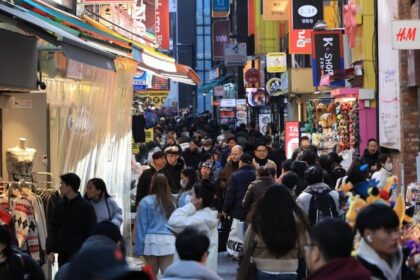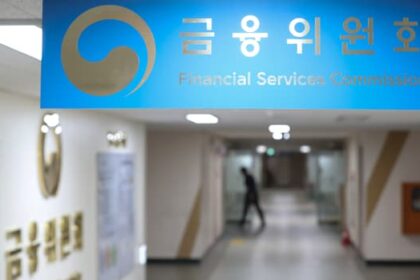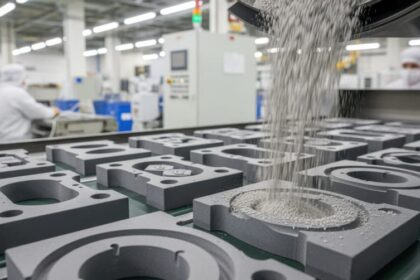Inside the quiet routine of a wealthy janitor
Koichi Matsubara, 56, lives in Tokyo and keeps a job that many people pass by without a second look. He is a janitor in a residential building, cleaning corridors, sweeping entrances, and handling small fixes. At the same time, his investments and rental properties bring in about 30 million yen a year, roughly 203,000 dollars. He keeps the janitor job by choice, not need, using regular physical work to stay healthy and grounded.
- Inside the quiet routine of a wealthy janitor
- How a frugal strategy built steady wealth
- Why keep working when passive income covers the bills
- A lifestyle shaped by thrift and quiet wealth
- Renting in Tokyo and the role of building staff
- The rise of invisible millionaires in Japan
- Online reaction and public conversation
- Wealth, work, and aging in Japan
- Practical takeaways for readers
- Highlights
Matsubara works a simple schedule, four hour shifts on three days each week. The job pays about 100,000 yen per month, while the average monthly salary in Tokyo is around 350,000 yen. The gap is a reminder that his motive is routine and well being rather than income. Neighbors may not realize it, but he is one of the wealthiest people in the block. Local media have called people like him invisible millionaires, those with significant assets who move through daily life without display.
His route to financial comfort did not involve windfalls or risky bets. He grew up in a single parent home and adopted strict saving habits early. After secondary school he joined a factory, earning about 180,000 yen a month. Over a few years he saved roughly 3 million yen. During a soft period in the housing market he bought a small studio apartment. By keeping the unit occupied and paying down the mortgage ahead of schedule, he built equity and cash flow. He repeated the process carefully. Today he owns seven rental flats in Tokyo and nearby suburbs and also holds stocks and investment funds.
How a frugal strategy built steady wealth
Unlike stories of sudden fortune, Matsubara illustrates the slow build that many ordinary earners can understand. Japan saw property prices fall for years after the early 1990s bubble burst. That long slump left pockets of value for buyers with patience and savings. Apartments geared toward singles and couples, especially compact studios near train stations, tend to rent quickly when priced reasonably. Reliable tenants and modest renovations can produce steady cash flow and allow early repayment of loans.
From first studio to seven units
By using savings for a down payment on a small unit, then focusing on occupancy and maintenance, he created a system that he could repeat. Each time a loan balance fell, surplus rent could be directed to the next purchase. Paying attention to simple metrics, such as net yield after costs and access to reliable transport, reduced surprises. Keeping a unit clean and well maintained also lowers vacancy risk, which can mean more to long term returns than chasing a slightly higher headline rent.
Diversifying into stocks and funds
Property is only one part of his approach. He also invests in equities and funds, which provide dividends and potential growth without the need to be on site. Spreading income sources can smooth the bumps that come with vacancies or repair bills. Many Japanese savers favor cash and deposits, but steady investing in broad funds has gained ground in recent years through tax advantaged programs and workplace plans. A mix of rentals and market investments creates multiple streams that do not move in lockstep.
Why keep working when passive income covers the bills
Continuing to work while financially secure can look odd at first glance. For Matsubara, light physical labor provides structure, social contact, and daily movement. That combination supports health and mood. The World Health Organization advises adults to aim for at least 150 minutes of moderate activity each week. A schedule of three shifts of four hours, with steady walking, lifting, and cleaning, comfortably clears that threshold even at an unhurried pace.
Routine matters for mental health too. Knowing that people will rely on him to open up common spaces or tidy an entrance gives him purpose. The tasks are straightforward and visible, and progress is immediate. This sense of completion can help reduce stress, especially for those who manage finances and investments that change value from day to day. Keeping a job also keeps the mind engaged, since building staff solve small problems, coordinate with residents, and plan maintenance on the fly.
Many older Tokyo residents return to the workforce in flexible roles after midlife careers. Employers value reliability and the ability to interact with tenants. Work in residential buildings is often designed in short shifts, which makes it easier to manage health needs and family care. Combining this with financial independence can lead to a less pressured relationship with work, where the job is about activity and helpfulness rather than survival.
A lifestyle shaped by thrift and quiet wealth
Matsubara lives simply despite substantial assets. He cooks at home, rides a bicycle for most trips, uses a basic smartphone, and remains careful with utilities. Reports say he has not bought new clothes in years. He chooses a modest apartment for himself rather than a large owner suite. These choices are not rooted in deprivation. They reflect a preference for independence and a dislike of clutter and attention.
Keeping expenses low protects freedom. Investors face periods when rents soften or markets swing lower. A lean household budget makes those stretches easier to absorb. It also reduces the urge to seek higher returns from riskier assets. Many people who build wealth quietly learn to avoid lifestyle creep, the tendency to spend more simply because income rose. By keeping fixed costs low, a person can say yes or no to paid work on their own terms.
There is a cultural thread here too. Japanese households often value tidy spaces, care for items so they last, and avoid waste. That frugal sensibility has roots in family habits and in national experience with tight times. Managing money without show, and finding pride in ordinary work, fits that tradition.
Renting in Tokyo and the role of building staff
Tokyo has a deep market for compact rental units. Many buildings sit close to train stations, with small studios and one room apartments that suit single workers and students. Units turn over frequently, but demand is steady. Owners who keep apartments clean and functional can hold occupancy rates high even when the wider economy slows. That environment suits landlords who value stable income over quick flips.
Residential buildings in Japan also rely on on site staff for daily upkeep. Janitors and building attendants handle sweeping, mopping, trash collection areas, and small repairs. They greet delivery workers, keep an eye on entryways, and alert managers when larger maintenance is needed. Several of these roles are filled by older workers who choose flexible hours after formal retirement. The work is physical but moderate, and the community contact can be rewarding.
The rise of invisible millionaires in Japan
The phrase invisible millionaire has gained traction to describe people whose balance sheets are larger than their lifestyles. Many live in modest homes, use public transport, and carry older phones. They may own several properties or hold sizeable savings, yet dress plainly and avoid luxury brands. This pattern is not unique to Japan, but it aligns with local norms around modesty and privacy.
Japan is a high saving society. Household surveys show a large share of assets held in cash and deposits, and a growing slice in funds as education about long term investing spreads. Quiet wealth building often comes from decades of regular saving rather than a single big score. When that habit meets the rental market and patient investing, a person can end up with far more assets than most people would guess from appearances.
Online reaction and public conversation
Matsubara’s story spread quickly across social platforms. Many readers praised his rational approach to money and his decision to keep moving rather than sit at home. Others pointed out that a clean building benefits residents every day. The combination of financial security and visible work challenged assumptions about status, and that contrast made the story travel far.
Some commenters raised questions about whether a person with significant assets should hold an hourly job. That view tends to fade when the role is understood as exercise, service, and structure instead of economic necessity. In a city where many older adults look for ways to stay connected, work like this can be a bridge between independence and community.
Wealth, work, and aging in Japan
Japan is getting older, and that shift shapes daily life. The share of people aged 65 and older is among the highest in the world, and the labor force participation rate for that group remains high by international standards. Many companies offer reemployment tracks for seniors who want reduced hours. Local governments support programs that match older workers to roles that suit stamina and skills. Light facility work and concierge style assistance appear often on those lists.
Pensions provide a base, but systems also allow some early or delayed claiming, which affects monthly amounts. People who have assets or rental income often prefer to keep working in some capacity. They feel healthier, they maintain social circles, and they stretch formal benefits. A few days of work each week can keep a person sharp and mobile long after a desk job might have encouraged long periods of sitting.
Matsubara fits that wider picture while keeping a distinct personal approach. He treats money as a tool that supports a chosen routine. The chosen routine includes scrubbing a lobby floor, tightening a loose hinge, and greeting neighbors. The result is a life that looks ordinary from a distance and feels rich from the inside.
Practical takeaways for readers
Stories like this resonate because they blend patience, prudence, and purpose. For readers who are weighing passive income or a simpler life, the ideas below reflect common threads in successful plans. They do not guarantee results, but they capture habits that consistently support financial and personal stability.
- Start with disciplined saving and clear budgets. Track spending for several months and identify costs that can be cut without harming health or safety.
- If buying a rental, begin with a small unit in a location with steady demand. Proximity to trains, universities, and employment hubs matters more than decor.
- Run conservative numbers. Include taxes, insurance, repairs, and vacancy in cash flow estimates. Favor durability over high rent promises.
- Pay down debt ahead of schedule when cash flow allows. Lower leverage reduces risk and stress.
- Mix assets. Pair rentals with broad stock or fund investments to avoid reliance on a single income stream.
- Keep personal expenses low to avoid lifestyle creep. Align spending with values rather than trends.
- Stay active. Work can be part of a health plan. Choose roles that fit stamina, skills, and schedule.
- Protect privacy. Quiet routines and modest choices can make day to day life easier and safer.
Highlights
- Tokyo resident Koichi Matsubara, 56, earns about 30 million yen a year from rentals and investments.
- He still works as a janitor, three days a week in four hour shifts, for about 100,000 yen per month.
- He built wealth slowly, starting with savings from a factory job and a first studio apartment.
- His portfolio now includes seven rental flats plus stocks and funds, and he lives modestly.
- The story reflects a wider trend of invisible millionaires in Japan who avoid display and value privacy.
- Light physical work supports health and purpose, aligning with global activity guidelines for adults.
- Senior employment in Japan is widespread, with many older adults choosing flexible roles after midlife careers.












